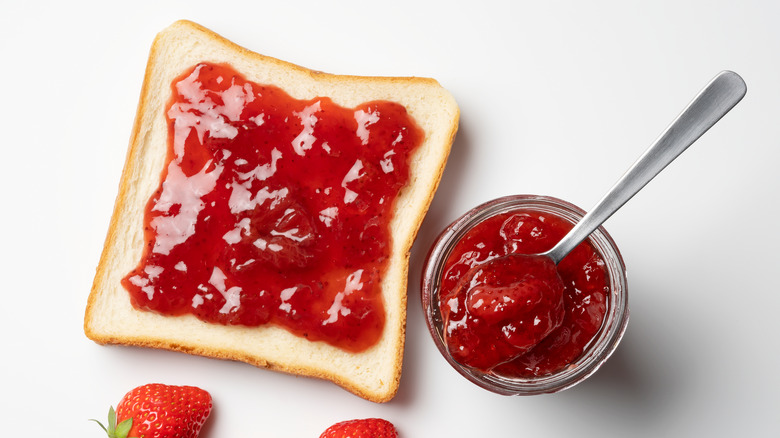Before Making Predictions, Nostradamus Wrote A Cookbook
You've probably heard of Nostradamus, in a sort of oblique, "that names sound familiar" kind of way. His name usually comes up in conversations about UFOs, conspiracy theories, and other sorts of fringe topics. That's because the 16th-century Frenchman is known for a great many prophecies that have been pervasive throughout the ages. As Sky History explains, he composed hundreds of quatrains — four-stanza poems — that supposedly made prophetic predictions. For example, one of his prophecies supposedly predicted the Great Fire of London.
Of course, whether or not Nostradamus was a true prophet who wrote accurate predictions is a bit outside of our lane. But, the seer didn't limit his writings to prophecy, as Atlas Obscura reports. He also wrote a cookbook, of a sort, although in its context it was less of a cookbook and more of an book of remedies that contains a handful of recipes (as well as beauty tips and alchemical concoctions).
Treatise on make-ups and jams
If you were to purchase a cookbook by Gordon Ramsay or Thomas Keller, for example, you'd find recipes and, possibly, some context for those recipes (perhaps the chef lovingly explains how he learned it from the cook at a hole-in-the-wall fish & chips place in London). But, if you were to purchase Nostradamus' "Traité des fardements et confitures," you'd get a lot more. It's right there in the title: translated from the French, it means "Treatise on makeup and jams."
There's quite a bit of context that needs to be understood here. First of all, it wasn't uncommon for "cookbooks" up until around the 18th century to be about more than just recipes and cuisine, and some included concoctions intended as medicine, notes Atlas Obscura. Nostradamus, in addition to writing prophecy, was also an apothecary (a profession somewhere between medicine and sorcery) so it would make sense that he'd include some alchemical writings in his tome. The seer also included some makeup tips, because why not, as well as some advice for avoiding the plague.
are the recipes any good?
Putting aside the makeup tutorials, the alchemical concoctions, and all of the other writings in Nostradamus' cookbook, and zeroing in on the food recipes, we're faced with the question: Are those recipes any good? And the answer is, some are, some are not.
For example, there is a recipe for something that is at once a love potion and a jam, which requires the blood of seven male sparrows, according to Atlas Obscura. By contrast, Nostradamus' recipe for candied orange peel, constrained though it was by the limits of 16th-century French kitchen technology, sounds pretty good, as Bon Appetit explains. The labor-intensive process takes nine days, but in the end, it's not much different from a modern product made with the same ingredients.
Similarly, his jam recipes are not much different from modern-day recipes, although Atlas Obscura notes that at the time, sugar was so rare and valuable that only kings and their courts would ever be able to taste it. Other recipes include one for preserved pumpkin, which the alchemist claimed could reduce fever, as well as a recipe for the still-popular marzipan.


